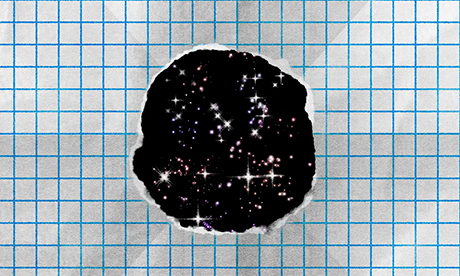I have written about mathematics for The New Yorker and, lately, also in my book “A Divine Language: Learning Algebra, Geometry, and Calculus at the Edge of Old Age,” and I thought that I had said everything I had to say about mathematics and my simple engagement with it, but I find I can’t stop thinking about it.
Five years ago, when I was sixty-five, I decided to study adolescent mathematics, because my first encounter with it had left me feeling stupid and defeated.
Also unsettled, privately, about my fitness for a successful life, since I hadn’t ever lost so profoundly to anything like I lost to math. It led me to wonder how many more losses might await me and how many might result from similar, not-yet-come-upon insufficiencies.
Studying simple mathematics a second time changed how I apprehended the world, which was an outcome I didn’t expect.
I used to feel that I saw something divine in nature, and now I think that what I saw was an intimation of mathematical structure, of pattern and motion and symmetry and scale, among other things, and that these produced a sense of the divine.
Is it possible that existence reduces to numbers, that things in themselves are numbers or, at least, can be described by them?
It is an ancient conjecture that still has potency.
Numbers originally described simple quantities then later showed themselves capable of describing grand aspects of nature intimately—the orbits of planets, for example.
Mathematics is the language of science because it is the most efficient means we have for precisely describing complex material and even ineffable things.
The theory of relativity can be expressed in prose, but E=mc² is more succinct.
I did not expect that studying a childhood discipline would lead me to wonder about divine matters, but the possibility of a divine entity is threaded throughout mathematics, which, in its essence, so far as I can tell, is a mystical pursuit, an attempt to claim territory and define objects seen only in the minds of people doing mathematics.
Why do I care about abstract possibilities and especially about God, when I have no idea what such a thing might be?
- A concept?
- An actual entity?
- Something hidden but accessible, or forever out of reach?
- Something once present and now gone?
- Something that ancient people appear to have experienced at close hand?
I seem temperamentally drawn to the idea of a divinity.
As a child, I sometimes had the feeling of an accompanying presence, usually when I was by myself in the woods, a feeling of something infinite behind everything.
It was an awareness of the world itself as somehow animated.
This is a manner of thinking called immanence, in which the divine is believed to be among us, as it were, obscurely present, felt but not seen.
I think so many people experience this that it seems quaint to regard it as original or even unusual. I simply add myself to those who have perceived it.
There is a period of childhood when the balance between the conscious and the unconscious is not weighted so much toward consciousness, a period when one receives sensations differently and is less inclined to analyze them.
I feel this presence still, often in nature, in the vicinity of the infinitely large and the infinitely small, as in the night sky. Also, in the contemplation of the number line, which embodies both the infinitely small and the infinitely large.
Infinity itself occasionally contradicts intuition.
There are as many fractions as there are whole numbers, for example, but there are also an infinite number of fractions between any two whole numbers.
Between any two fractions, no matter how tightly bound, there is sufficient room to place an infinite number of other fractions. An infinite collection of numbers exists, but there is also an infinite collection of numbers that haven’t been imagined yet.
In “Two New Sciences,” Galileo noted the discordance in considering two line segments of unequal length.
Each segment consists of an infinite number of points, but the longer segment would seem to have more points.
He speculated that, on the one hand, the concepts of less, greater, and equal didn’t apply to infinite things, and, on the other hand, that there might also be a greater circumstance than infinity.
Something is infinite when it includes collections that have as many terms as it does, Bertrand Russell writes.
Something is also infinite when you can take things from it without making it smaller. Such observations, while concisely Western, also seem to have the purpose of confounding the mind in a Zen-like way.
If one is inclined toward mysteries, mathematics can lead one to the conclusion that behind the veil of life there is a structure and an order.
Among certain mathematicians, some of the great ones historically and presently, there is the belief that, at its highest ranges, mathematics seems to converge toward a unity and that this unity is God. Continue reading
